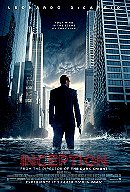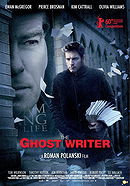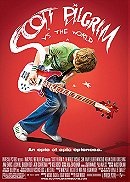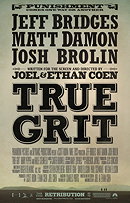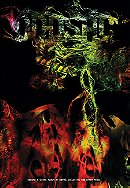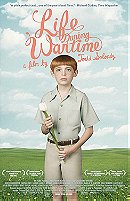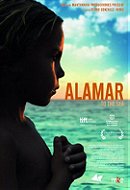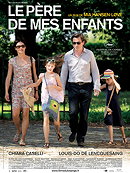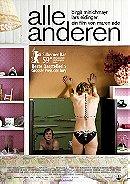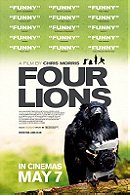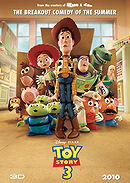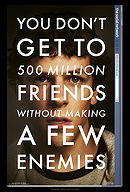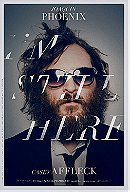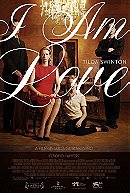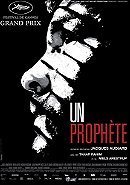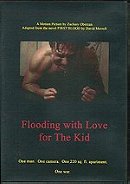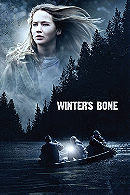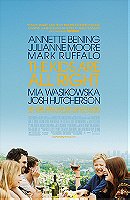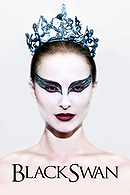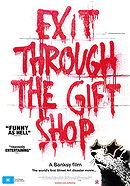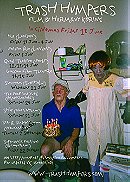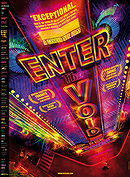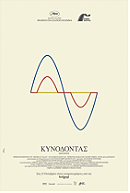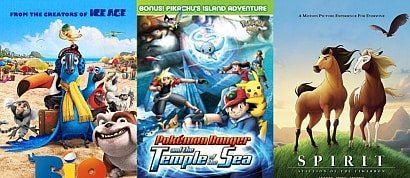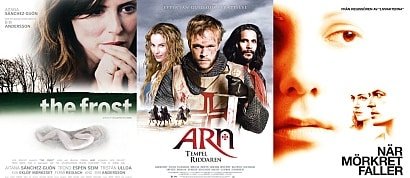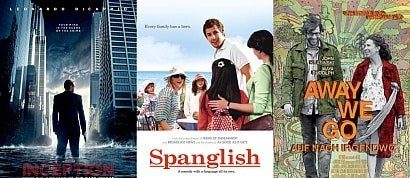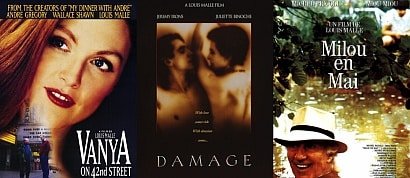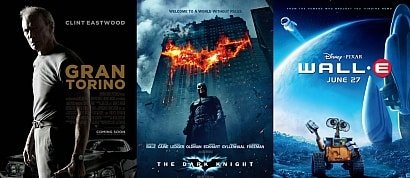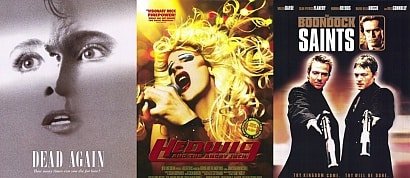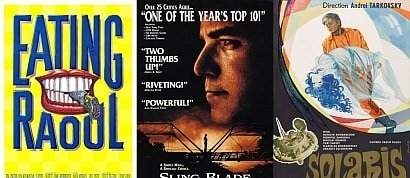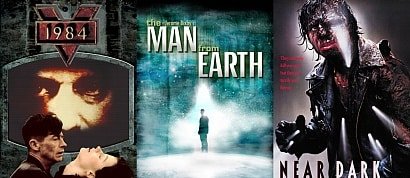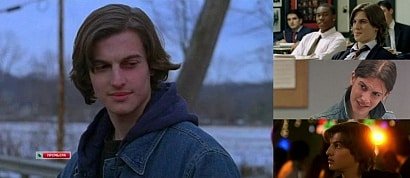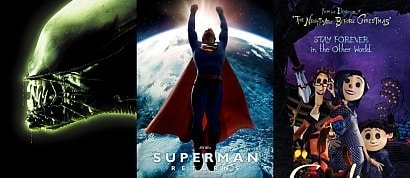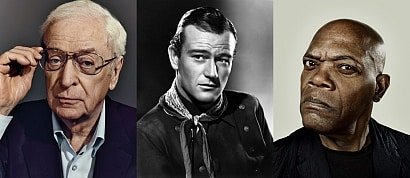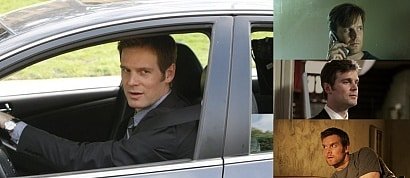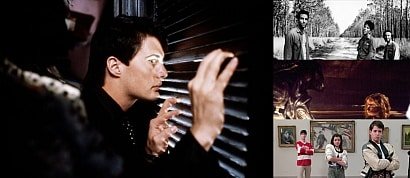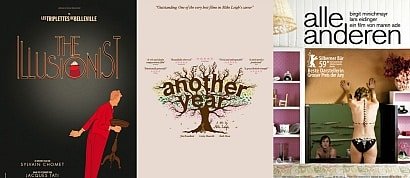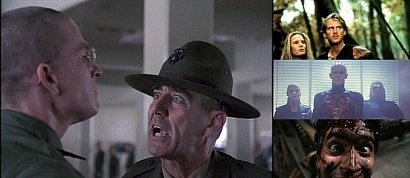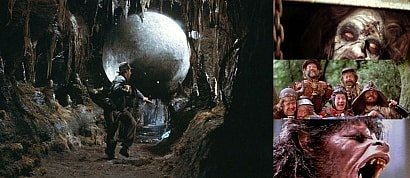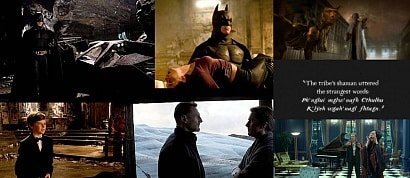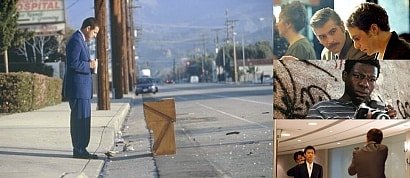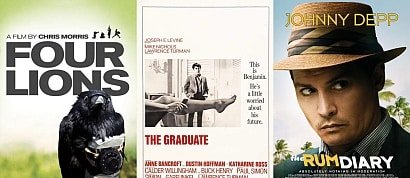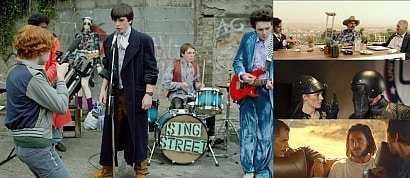Tiny Mix Tapes Favorite 25 films of 2010
Sort by:
Showing 25 items
Decade:
Rating:
List Type:
Greenberg (2010)
Greenberg, if not wholly original, was certainly a welcome addition to the Noah Baumbach canon. Funny, charming, and pleasingly awkward, the film starred Ben Stiller as the hot-tempered Roger Greenberg and Greta Gerwig as the sweet, though slightly unstable, Florence Marr. Typical of what might now be considered the Bambauch oeuvre, Greenberg meditated on what happens when men act like boys and choose to chase after girls. Feeling directionless, Roger temporarily relocated to L.A. from New York to housesit for his brother and promptly became interested in his brother's housekeeper Florence. The two become involved in a tempestuous on-again-off-again romance that left each of them feeling variously tormented, with Florence head over heels for a man who by all accounts was not equipped to love her. Serving as Gerwig's breakthrough 'mainstream' role and James Murphy's first film score, the film maintained Baumbach's indie aesthetic while simultaneously appealing to a wider audience. Ben Stiller will always be Ben Stiller and Noah Baumbach will always be Noah Baumbach, and to that extent the film perfectly met expectations.
the giraffe's rating:


Inception (2010)
In a year practically devoid of memorable live-action summer blockbusters, Inception was a monumental sensation. Aiming for cinematic immortality, director Christopher Nolan called on the industry's golden boy (Leonardo DiCaprio), assembled a distinguished supporting cast, and crafted a universe that was nothing short of titanic. Inception appeased the masses and stoked the blogosphere with an ambiguous ending ripe for dinner conversation and message board micro-debates. Nolan's maximalist vision risked being overblown and was decidedly imperfect, but it was a tremendous effort, managing to be simultaneously cerebral and innovative and a head-tripping thrill ride. Detractors may say that, as a heist film, Inception was conventional or that the concept of dream infiltration seemed like it was plucked from a William Gibson or Philip K. Dick story, but the folding cityscapes and gravity-pulled environments were all Nolan. And beneath the glossy surface was a sharp analysis of the desire to relive the past and recreate memories as they become parcels of a shape-shifting puzzle. What is most often lost in the discussion is where the film stands in the pantheon of science fiction cinema. If it's measured on those terms, then Inception was an unequivocal success.
the giraffe's rating:


The Ghost Writer (2010)
In the year leading up to the release of The Ghost Writer, Roman Polanski was in the news, once again, more than he wished. With the media swirl around his hot-button sexual assault case from 1977 and current imposed house arrest in Switzerland, the big question became: can we separate life from art? Will our damning of Polanski equal the damning of his new film? With all this fresh in our brains, it was easy to see the echoes and resonances within each frame. Billed, repeatedly, as a "return to form" by lazy critics who found it easy to construct the oft familiar narrative, The Ghost Writer instead presented itself as the work of a confident artist, exploring themes that have penetrated most of the director's previous work. The political murmurs that whispered around the edges of The Ghost Writer — which could have easily sidetracked a lesser film — worked as a destabilizing fracture, providing the slowly building cracks in the clean lines of the modernist prison that formed the stage for Polanski to render his unusual brand of anxiety-ridden human drama. There was hardly a thriller this year that fired on all cylinders, emotionally and intellectually, as well as The Ghost Writer. It's the work of a true craftsmen who, no matter which side you land on in the debate over past discrepancies, deserves to be recognized as such.
the giraffe's rating:


Scott Pilgrim vs. the World (2010)
How director Edgar Wright tricked Universal into shelling out $60 million for Scott Pilgrim vs. the World I have no idea. And when it went belly up at the box office, I doubt he gave a shit. I've never rooted for a movie the way I rooted for Scott Pilgrim. Like Scott himself, the movie was erratic, easily distracted, and didn't really care what you thought of it. And because of that, it was hopelessly lovable. I wanted scenes to make the right choices; I wanted them to stay on track. When they didn't, I accepted them all the same. That's the L-word right there ("lesbians," according to Scott). The same comedic spirit that made Shaun of the Dead and Hot Fuzz instant cult classics — dry wit bursting with juvenile energy — fired on all cylinders here, providing a singular voice among the carnival of talented young actors. Ellen Wong, Kieren Culkin, and Kim Pine stole every scene they were in, and Aubrey Plaza solidified her status as a National Treasure. But this was Wright's show. Like a modern John Hughes, he delivered a synopsis of our generation in bold colors, loud sounds, and unabashed realness. And if you were patient, you just might have fallen in lesbians with Scott Pilgrim.
the giraffe's rating:


True Grit (2010)
This archetypal tale of revenge wore all the trappings of a slick Hollywood Western — complete with an orchestral, watered-down Americana soundtrack — so convincingly, you might have forgotten that the directors were two of our best-known auteurs. At least when nobody was talking. Like O Brother, Where Art Thou?, their other film set in early 20th-century America, True Grit reveled in the comedic beauty of the American tongue. Its young protagonist Mattie Ross (Hailee Steinfeld) shot out turns of phrase quicker and with more precision than any of the film's gunslingers, none of whom were exactly taciturn. These verbal fireworks made True Grit one of the funniest films of the year, and, in the absence of a compelling storyline or characters with emotional depth, they're also what provided its momentum. In the end, we didn't care so much who died and who lived, as long as there was someone still yapping. It might have been a commentary on the inherent immorality of the Western genre. But in True Grit, the Coen Brothers didn't so much reinvent the Western as they did reanimate its corpse. What use do we have for a gallows comedy shoved into a hollowed-out Hollywood Western? We're not quite sure. But it's as uniquely American as a turducken, and just as entertaining.
the giraffe's rating:


Oddsac (2010)
Among 2010's examples of films with nontraditional narrative structures (see Enter the Void and Trash Humpers), Animal Collective's ODDSAC stood out as the starter kit for moviegoers ready to embrace film's capacity to have impact in the absence of a "normal" storyline. It was marketed as a "visual album" of 13 tracks, not as a film. Was this a hint that we should absorb it as an experience, closer to the way we're willing to take in music on its own? Probably. The music was beautiful and satisfying, but not a triumph in itself — that was achieved through its seamlessness with the album's visual splendor. ODDSAC was directed by Danny Perez, AC's guru of trippy music videos, so it wasn't surprising that this film was jam-packed with abstract visual-kinetic frenzy, color-saturated pattern pulsation, and brilliantly fragmented layering and manipulation that left you wondering how the hell they did that. But the key to ODDSAC's genius wasn't the absence of narrative, it was knowing exactly how much narrative we'd need and when to blend it in: a girl frantic to keep petroleum from filling her house, a marshmallow cookout gone horribly wrong, a vampire who likes to go canoeing in the moonlight. It was distortion that melded these narratives with the solely abstract, creating something pure in its own right.
Life During Wartime (2010)
Finally, a 2010 sequel that was better than the original. Okay, Toy Story 3 wasn't terrible, but Todd Solondz's Life During Wartime provided as much insight into the state of the contemporary American family without a talking dinosaur. Looking back, both Welcome to the Dollhouse and Happiness feel like relics of a forgotten past, the plague of suburban alienation in 1990s independent film. Rather than continuing to unmask the superficiality of upper-middle class life in his native New Jersey, Solondz instead embraced the artificiality of Florida and California. And like a theater director reviving an outdated play, he also recast every role from his previous films to give the characters new interpretations. The opening scene, in fact, rehashed the beginning of Happiness, creating a subtle interplay of similarities and differences between the works. This self-conscious approach to change was no accident: the film was an assault on the cultural cliché of a "post-9/11" society. Despite being a country embroiled in two wars, we have gone about our lives in exactly the same ways. With Life During Wartime, Solondz provided the figurative and literal ghosts to remind us of this, but he also ended on an optimistic note, with fractured families forging a new bond. Maybe it's a false hope? We'll have to wait for his next film to find out.
To The Sea (2010)
n a year when, arguably, the fickle divide between cinematic fiction and non-fiction finally cracked, resulting in what writer Robert Koehler called "the cinema-of-in-between-ness," there was no film that solidified the notion more significantly than Pedro González-Rubio's Alamar. The idyllic Banco Chinchorro coral reef provided the backdrop for the father-and-son bonding session, which served as the organizing principle of the film; the creation of a relationship out of the ruins of another, beautifully rendered through a series of small, fleeting moments that teetered between the sublime and the ephemerally poetic. The accumulation may have seemed of minor moments, but the film was greater than the sum of its parts and truly rewarded repeat viewings. Alamar achieved its startling effect, often loose and dream-like, through tone and rhythm; the style was so unobtrusive that it felt wrong to say the film was rejecting the symmetry of traditional narrative. Rather, it encouraged the viewer to simply look in a different way. Frankly, is there anything more important we can ask of cinema?
The Father of My Children (2009)
The Father of My Children served as a reminder that exposition is not always important, or relevant, to the success of a film. Carefully camouflaged with a pristine sense of restraint, writer and director Mia Hansen-Løve's film was quiet and simplistic in the best sense. The narrative — a story about a mother and three daughters recovering from the unexpected suicide of the family patriarch while trying to salvage the company he founded — thrived in stillness because its impact didn't rely on transparent motives or overwhelmingly gratuitous action. In fact, the film's lead characters retained more mystery and charm with their psychological processes somewhat veiled. Coexisting but never competing throughout, the facets of life portrayed in the film instead underscored the difficulties of maintaining artistic integrity, professional viability, and personal strength. The family managed their loss with grace and solemnity, letting the residue of the father's death resonate within their actions and routines. It was during these moments when the film pointedly illuminated the family's uncertainties, reflections, and ultimately questions of inheritance and legacy while they continued to account for and accommodate such a vast absence.
Everyone Else (2009)
With Everyone Else, Maren Ade succeeded at the difficult task of making a relationship film that was not only unique, realistic, and carefully observant, but actually funny. It sounds simple and, really, Ade made it look easy with the help of brilliant performances by both Birgit Minichmayr and Lars Eidinger, whose chemistry perfectly replicated a relationship slowly shifting into its first major crossroad. Ade created a believable, lived-in environment, capturing the minutia of everyday life — at best, glossed over in most films — and made it the film's focus. When the film's subtle transition occurred midway through, it came off as a remarkably natural progression that, at a whisper, spoke volumes, not only of the couples' relationship, but of the gender politics and social conformity that invariably shape who we are and how we relate to one another. That Everyone Else managed to successfully integrate these larger, universal concerns into an otherwise small, intimate film was a minor miracle unto itself. At only 34, Ade announced herself as a major voice, whose perceptive and attuned vision suggest that she has nowhere to go from here but up.
Four Lions (2010)
Although a few of this year's best films leaned hard on the first half of the phrase "dark comedy," Four Lions was an exception — a film that never let its humor be undercut or overwhelmed by the grimness of its subject. The first feature from British comedy veteran Chris Morris, Four Lions followed a group of amateur jihadists in North England as they fought over what form their debut attack should take. The endless gaffes and juvenile infighting of the insurgents made it clear that this was a film that refused to be freighted with its own political urgency. Often more English than Muslim, the group devoted more time to beans on toast than they did to prayer or study; their destructive impulse stemmed more from aimlessness than from fundamentalism. Although elsewhere disdained and condemned out of hand, the terrorists here were inept enough and childish enough to become endearing, even sympathetic. Abetted by some brilliant performances, well-crafted insults, and relentless slapstick, Four Lions managed to be at once absurdly funny and emotionally resonant. A subversive figure in British radio and television for 20 years, Morris has never had much truck with sentimentality. With Four Lions, though, he brought levity to a challenging, heavy topic and managed to make it not just hilarious, but human.
the giraffe's rating:


Toy Story 3 (2010)
Pixar's status as the most innovative and technologically superior animation studio in the world is pretty much unassailable at this point. While the advances the animation powerhouse have made in the last decade are — from a purely technical perspective — totally mindblowing, what really made the latest installment of their most cherished/lucrative franchise such an absolute joy to watch was its ability to draw us into a story rife with sincere, big emotions without becoming overtly cloying or sickeningly fake-nostalgic. The family-friendly animated feature chose to cover some of the more pressing issues of real life, most notably the debilitating feelings of utter worthlessness that the cast-off (laid-off?) toys have to grapple with on their way to confinement and abject humiliation in a Stalag 17-esque Day-Care prison nightmare. Perhaps it was the unbridled and un-cheapened optimism of the film that made us appreciate it as much as we did, but when it was all over and the credits ran, it seemed as though the CGI technology Pixar put so much R&D into had finally caught up with the film's deftly wrought narrative. It's not every day that slo-mo extreme close-ups of animated toys elicit actual responses from adults with real problems and real lives to get back to (and, you know, kids and stuff).
the giraffe's rating:


The Social Network (2010)
In David Fincher's nervy, nimble hands, the story of Harvard genius Mark Zuckerberg and the creation myth of Facebook lost its cool, intellectual reserve and became entertainment. No mere revenge of the nerds, this cyber success story had flow and punch. Through kinetic visuals, Aaron Sorkin's words, words, words became visceral. There's not much sex, drugs, or rock 'n' roll in social networking, and the film wisely reframed this story as a classic tale of the cost of the rise to power. Dramatic weight went to the betrayal, debauchery, and dizzying success that made Zuckerberg such fierce enemies. The performances were notably strong, from Armie Hammer's conquering both Winklevoss twins, to Justin Timberlake as Napster founder Sean Parker, who delivered a cocky diatribe on his greatness while being fondled by models in a club. Then there was Jesse Eisenberg as the NerdKönig himself, the socially autistic but razorsharp Zuckerberg. Hell, even Trent Reznor chipped in, contributing the memorable and prickly score. Dust off that tux and clear some room on the mantle, readers.
the giraffe's rating:


Taking in Casey Affleck's tempered, naturalistic directing and Joaquin Phoenix's tour-de-force performance quite simply blew us away. The fact that the whole thing was an elaborate and bafflingly time-consuming fake didn't really detract from our ability to appreciate the insane amount of mastery and patience needed to pull the whole thing off. Phoenix's work in particular was downright awe-inspiring, the actor fully embodying a character with virtually no redeeming qualities for well over a year. I'm Still Here was more a meditation on the nature of fame and consistently nurtured egotism than the cheap ploy to garner attention that many critics figured it to be. Phoenix's masterwork of characterization wasn't merely a rehash of Crispin Glover or Andy Kaufman, but something refreshingly new and vivid. Rather than being a sensationalist novelty, the sensationalism that surrounded the film upon the realization of its artificial nature spoke to the central question that its makers were trying to get at. Namely, in film, is there really all that much of a difference between what's real and what's not? And, if so, is it really all that important? A film that asks such basic questions about the nature of narratives and their respective realities is always going to make certain segments of the population upset, and we loved every minute of it.
I Am Love (2009)
As quickly as Luca Guadagnino's I Am Love presented the viewer with melodramatic conventions, it subverted and twisted them like one of the cinematographer's hypnotically winding shots. The Recchi family of Milan, whose name is playfully close to the Italian word for "the rich people," were not the cutthroat capitalists we've come to know and hate, just a tad on the amoral side with a possessive and ultimately ironic instinct for self-preservation. Tilda Swinton's Emma Recchi was not the upper-crust matriarch trapped in a loveless marriage with spoiled children, but perhaps a little confused at her life's journey across the class and culture divide of Soviet Russia to la dolce vita. And the younger, haute cuisine chef who presented her object of romantic redemption was less a working-class hero in the mold of Rock Hudson in All That Heaven Allows than a strangely figurative embodiment of the "salt of the earth." The existential quandary of Emma's decision to find a personal rebirth, inspired by seeing her children awaken into their own adult lives, ultimately became a nuanced examination on the role of place: geographic, socio-economic, or emotional.
Mother (2009)
A Bong Joon-ho film is like someone with a poker face who can't stop smiling at the aces he's about to lay down. He's good and can usually conjure some touching human moments, but he takes a little too much pleasure in unfolding his sickeningly devious plots. Mother may be his first movie to break free of the poker hand and play freely. With it, the director proved that, although he has risen to the top of the current wave of South Korean ultra-violent directors (Park Chan-wook, Na Hong-jin), he's more than the sum of his virtuoso tricks and Grand Guignol setpieces (Park may have him bested there, anyway). Devious and disturbing though Mother may be, Bong was unwilling to sacrifice an equally painful examination of the deeper reasons people are driven to violence. In Mother, everyone had a reason to hurt someone else, from the world-weary cops investigating the local retarded boy (the one being accused of a bizarre murder) to the boy's mom, a sweet little neighborhood apothecary. Beyond its insidious central mystery, Mother was the carefully detailed picture of an average woman being driven to an extreme end. Everybody made sacrifices in deciding what is right; Bong would like to remind us that if we have children, our decision may already be made for us.
the giraffe's rating:


A Prophet (2009)
2010 has been a great year for genre films. My year-end list is populated with an inordinate number of gangster films and murder mysteries. I even have two Westerns on it. Yet, in this heap of genre-picture bliss, Jacques Audiard's A Prophet was not only superior to these films, but also emblematic of the pensive revisionism that so many of these films seek. In the film, Malik (Tahar Rahim) — who is thrown in jail for an unmentioned crime — is slowly sucked into the world of prison crime with its racially drawn divisions. In his attempt to make a name for himself outside of the prison walls, audiences were treated to an intensely personal story of a damaged young man navigating a world dense with ulterior motives and malice. At heart, what is simultaneously a quiet personal film and violent thriller was an examination of shifting racial landscapes, the impact of the economic crisis, and political corruption. Audiard has made a number of distinctive, beautiful films, but A Prophet stands as his masterpiece.
Flooding with Love for the Kid might be 2010's film with the most to say about cinema; it's also the film least informed by it. Zachary Oberzan had a budget of $96 and used only one camera, but nothing in this one-man adaptation of First Blood (the novel that inspired Rambo) recalled the shaky, impressionistic beauty that much lo-fi filmmaking strives for. Instead, the shots were artlessly composed and always static. In fact, not a single frame was aesthetically pleasing — even the fonts were bad. But film isn't nice composition, and Oberzan — an Obie-winning thespian accustomed to performing without props or sets — realized this, masterfully utilizing pacing, editing, and sheer conviction to transform household items into helicopters and cars, and to expand his 220-sq. ft. apartment into an entire county. It was an impressive feat, especially since he played 20 different characters (and 3 dogs), sometimes 6 onscreen at a time. Sure, part of this film's joy was its gimmick, and part was its ridiculousness (which Oberzan, his Rambo hunting and eating a teddy bear, seemed to embrace). But emotionally, this film was as real as its guns and beret — the only items Oberzan actually bought. In showing what film can do without, Ozerban just emphasized what's truly essential.
Winter's Bone (2010)
Winter's Bone was as gritty as unwashed bok choy and as American as peanut butter, banana, and bacon sandwiches. None of that and precious little other food was in the film, which depicted bleak events in a desperately impoverished region of the Ozarks. My mom noted that the casting call must have brought together an intimidating — hell, a downright frightening group of people. Face tats, permanent grimaces, sunken eyes. And some of those people turned out to be phenomenal actors. The affecting performances were driven by subtle, understated writing and a simple but compelling story about a girl trying to uncover the whereabouts of her dad so that the cops won't take away her house. We didn't expect much to go right, and we weren't surprised in that regard. But the characters' terrible pain was truly sublimated: Winter's Bone was a genuine tragedy. It hollowed us out, made us lighter and sadder. It taught us again that yearning can engender desire as well as depression.
the giraffe's rating:


The Kids Are All Right (2010)
It's hard to argue that The Kids Are All Right wasn't a "message" movie when its title underlined what it argued for — the validity of alternative families. What helped Kids transcend this tag is how it never sacrificed honesty or comedy for PC piety. The movie may have told its liberal audience what it wanted to hear, but unless you voted for Prop 8, that's not necessarily the same thing as pandering. Yes, the kids are all right, but only because of their relative innocence; the adults, gay or straight, are pretty fucked up. With Annette Bening and Julianne Moore's decades-old partnership poisoned by overfamiliarity and passive-aggressiveness, and Mark Ruffalo's sensitive stud toxically in The Bubble, it's amazing how much humor Lisa Cholodenko pulled from their interactions without glossing over the hurt they caused each other. To find a similar combination of wit and sympathy in American film, you may have to head back to the heyday of Paul Mazursky — and anyone who thinks The Kids Are All Right is too precious should remember how Bob & Carol & Ted & Alice ended.
the giraffe's rating:


Black Swan (2010)
No one can accuse Darren Aronofsky of being a timid director, and with Black Swan, he delivered a hallucinatory melodrama while maintaining complete control of his craft. Natalie Portman starred as Nina, a dancer whose mind unraveled after she was given a starring role in Tchaikovsky's Swan Lake. Portman was in every scene, and her commanding performance forced audiences to share her anxiety. We grew to care for Nina because those who were supposed to care for her, her director (Vincent Cassel) and mother (Barbara Hershey), couldn't see how their sinister defects casted a psychic toll on the young dancer. Despite strong performances, Black Swan was at its best when Aronofsky's bravado camerawork left a visceral impact. During dance rehearsals and performances, the camera penetrated the company as if it were a fellow member. The special effects, which were subtle and bold in equal measure, became an eye-popping metaphor for Nina's undeveloped sexuality, as well as her eroding sanity. And when Black Swan reached its climax, we were presented with the year's most hauntingly beautiful transformation. Even if Aronofsky's tight rein scarcely offered a moment to breathe, his arresting imagery left us gasping for more.
the giraffe's rating:


Exit Through the Gift Shop (2010)
Many of this year's documentaries seemed to exist solely to summarize a current event or promote some grassroots cause, the cinematic equivalent of an informational brochure. But with Exit Through The Gift Shop, enigmatic street artist Banksy came armed with an actual thesis about the relationship between art and commerce, not to mention a rousing narrative to boot. Whether said narrative was crafted using "real" footage placed Gift Shop among a new breed of films, along with Catfish and I'm Still Here, dubbed "hoaxumentaries" (where there's a will, there's a genre), docs that carefully blur the line between reality and fiction. And indeed, when Gift Shop's central goofball Thierry Guetta spouts ludicrously daffy lines like "I'm like a bird... I like to fly from one artist to another," you can't help but ponder if he's being played by an actor or perhaps, as some have suggested, even Banksy himself. But if it turns out that Gift Shop is yet another byproduct of Banksy's seemingly endless imagination, then hey, all the more power to him. It might just be his finest work yet.
the giraffe's rating:


Trash Humpers (2011)
The unexpected theatrical distribution of the defiantly analog, rash, and experimental Trash Humpers was some sort of cinephilic revelation. Shot with a handheld VHS camera with seemingly no plot or script, the film consists of people wearing old-person masks who whoop and holler and sing songs as they smash lights and televisions, hump trash cans, and occasionally murder, managing to bring a camera along too. And yet it would've merely been a random series of darkly funny sketches if the perspective weren't so fascinating. As these events repeat in various iterations in an oddly desolate cityscape, the exhilaration turns into a mundane, almost ritualistic portrayal of life, to the point where I started to feel some strange empathy for these people. Why do they hump trash? Because they need to. The joke fades, but the fireworks keep flying, and I was moved when the film's hypnotically absurd world became recognizably human. It is Harmony Korine's gift that he can find a kind of beauty in bizarre, aberrant subcultures that may or may not actually exist, and here a distorted focus — aesthetically and narratively — resulted in, ironically, his most singular and immersive vision yet.
Gaspar Noé is known for his dark spectacles — most notably, the graphic, nine-minute rape scene that made his 2002 film, Irreversible, a sort of audience endurance test. In the years between that movie and its follow-up, Enter the Void, the cinema has been deluged with torture porn. Now that we've become desensitized, Noé has found a new way to get to us: pleasure. Although it had its share of jarring moments, Enter the Void tipped its hand in its witty, colorful, and exuberant animated opening credits. The plot was almost incidental, but the central theme, a Tibetan Book of the Dead-inspired inquiry into what happens after we die, combined with soaring cameras and a psychedelic, neon color palette, created an all-encompassing visual and philosophical experience. Ever the provocateur, Noé occasionally pushed past brilliance into silliness, but he did it with such energy you couldn't help but humor him. Enter the Void stretched the boundaries of filmmaking while carrying on the mystic tradition of such masters as Alejandro Jodorowsky, whose movies it will surely earn a place beside at midnight screenings for decades to come.
the giraffe's rating:


Dogtooth (2009)
Family is nonsense. In Yorgos Lanthimos' Dogtooth, a father sits down to dinner and asks his family, "When is a child ready to leave the house?" The children respond with "When the dogtooth falls out." In humans, canine teeth typically fall out between the ages of five and seven. The human children at the dinner table have grown into their twenties and thirties. The father then asks, "Do you want to hear your grandfather sing?" He plays Sinatra, translating "Fly Me to the Moon" as "I love my house and I will never leave it." The children smile. "What is a cunt?" the eldest daughter asks her mother. It is a word she did not learn from vocabulary tapes. "It is a large lamp," the mother says.
Watching Dogtooth was like tonguing your brother's ear in the back of the family van. It was your grandmother's fingers, gnarled with arthritis, opening a Pepsi. The relative weird happens in all worlds, be it a fenced-in suburban home in Dogtooth or your sister's wedding. Not since Todd Solondz's Welcome To The Dollhouse had a film so brutalized family convention. This Greek picture of middle-class isolation and control made hardly a peep upon release, waiting like family does to choke you. It was a welcome relief from the noisier mind-fucks (Enter the Void, The Human Centipede), as Lanthimos discerned between style and agenda. He refrained from finding a moral, keeping his hand out of his pants and licking your eye instead. Save for the composed cinematography, there was nothing deliberate about Dogtooth. The camera angles mimicked a child's perspective; we often stared at characters' stomachs, their heads and feet decapitated from the frame. We saw the belly of family, our existence. We saw a creepy house, along with a realness hard to find outside rooms where the afternoon light illuminated the boredom braiding your sister's hair. It is what steers the death drive.
Shot in the colors of a hospital, the whites, grays, and pinks were like mother's milk — a soft hygienic maintenance. Then the blood: brother's forearm slashed with a butcher knife by sister; garden shears driven through a kitten; complacency utterly fucked in moments of gore, curious love. The colors lent a physicality to the film, like nerves and tissue popping red against skin. Then the sex, the performance of incest in the midst of ennui, the body functioning as a nail. Lots of kinky sex was had this year in Hollywood, but few films fucked us in the stomach the way Dogtooth's pale adult children copulating against a headboard covered in stickers did.
Year-end lists are a strange attempt to assemble moments into a package, like a single photograph you can hand to someone and say, "Here, this is what happened last year." When dealing with film, we tend to be disappointed. Three, maybe four, films really burned my hair this year. Maybe this is because I've got my hand in other cookie jars (books, literary magazines, music), or maybe there is a serious lack of brutal films being made in the new century. Or perhaps it's more about personal dosage, how much we can tolerate. Watching something like Dogtooth changed us; the visual imprint, the internalization of trauma lent a kind of permanence to our lives. That final scene will make us cringe for years. Just like when the eldest daughter finds a videotape of Rocky and reenacts the boxing scenes on herself, we can't shake the bloody images or the sound of a 10-pound dumbbell smashing into a jaw. It stays with us. And this might be the difficulty in finding other films to see; the uneasy blankness we feel after Dogtooth compromises our daily existence. But isn't that one of the reasons for great artistic works? To be bothered? Maybe it's okay that only a few movies truly bothered us this year. We couldn't handle any more.
Watching Dogtooth was like tonguing your brother's ear in the back of the family van. It was your grandmother's fingers, gnarled with arthritis, opening a Pepsi. The relative weird happens in all worlds, be it a fenced-in suburban home in Dogtooth or your sister's wedding. Not since Todd Solondz's Welcome To The Dollhouse had a film so brutalized family convention. This Greek picture of middle-class isolation and control made hardly a peep upon release, waiting like family does to choke you. It was a welcome relief from the noisier mind-fucks (Enter the Void, The Human Centipede), as Lanthimos discerned between style and agenda. He refrained from finding a moral, keeping his hand out of his pants and licking your eye instead. Save for the composed cinematography, there was nothing deliberate about Dogtooth. The camera angles mimicked a child's perspective; we often stared at characters' stomachs, their heads and feet decapitated from the frame. We saw the belly of family, our existence. We saw a creepy house, along with a realness hard to find outside rooms where the afternoon light illuminated the boredom braiding your sister's hair. It is what steers the death drive.
Shot in the colors of a hospital, the whites, grays, and pinks were like mother's milk — a soft hygienic maintenance. Then the blood: brother's forearm slashed with a butcher knife by sister; garden shears driven through a kitten; complacency utterly fucked in moments of gore, curious love. The colors lent a physicality to the film, like nerves and tissue popping red against skin. Then the sex, the performance of incest in the midst of ennui, the body functioning as a nail. Lots of kinky sex was had this year in Hollywood, but few films fucked us in the stomach the way Dogtooth's pale adult children copulating against a headboard covered in stickers did.
Year-end lists are a strange attempt to assemble moments into a package, like a single photograph you can hand to someone and say, "Here, this is what happened last year." When dealing with film, we tend to be disappointed. Three, maybe four, films really burned my hair this year. Maybe this is because I've got my hand in other cookie jars (books, literary magazines, music), or maybe there is a serious lack of brutal films being made in the new century. Or perhaps it's more about personal dosage, how much we can tolerate. Watching something like Dogtooth changed us; the visual imprint, the internalization of trauma lent a kind of permanence to our lives. That final scene will make us cringe for years. Just like when the eldest daughter finds a videotape of Rocky and reenacts the boxing scenes on herself, we can't shake the bloody images or the sound of a 10-pound dumbbell smashing into a jaw. It stays with us. And this might be the difficulty in finding other films to see; the uneasy blankness we feel after Dogtooth compromises our daily existence. But isn't that one of the reasons for great artistic works? To be bothered? Maybe it's okay that only a few movies truly bothered us this year. We couldn't handle any more.
the giraffe's rating:


As agreed upon by the film critics at Tiny Mix Tapes (www.tinymixtapes.com), with notes from the original article which can be viewed here.
Added to
30 votes
the giraffe's movie lists guide
(195 lists)list by the giraffe
Published 13 years, 2 months ago  2 comments
2 comments
 2 comments
2 commentsRelated lists
20 From 70. My Favorite Films From The Year 1970
20 item list by The Mighty Celestial
13 votes 2 comments
2 comments
20 item list by The Mighty Celestial
13 votes
 2 comments
2 comments
35 From 00: My Favorite Films From The Year 2000
35 item list by The Mighty Celestial
6 votes 1 comment
1 comment
35 item list by The Mighty Celestial
6 votes
 1 comment
1 comment
View more top voted lists
People who voted for this also voted for
Nick's best films (1)
The Evolution Of Gene Kelly
The evolution of Bibi Andersson
30 movies in 30 days
The Evolution of Zach Gilford
Louis Malle's Movies
Favorite of 2008!
BEST CULT FILMS - Part 5
BEST CULT FILMS - Part 4
BEST CULT FILMS - Part 2
The Evolution of Peter Vack
Best movie posters
Python Actor Championships
The evolution of Peter Krause
My 1986 Favorites
The A.V. Club's best films of 2010
Best movies of 1987
Best movies of 1981
Best movies of 2005
Best movies of 2002
A Listal user's guide to my movie lists
Movies the giraffe watched in 2017: January
 Login
Login

 401
401
 6
6
 6.1
6.1
